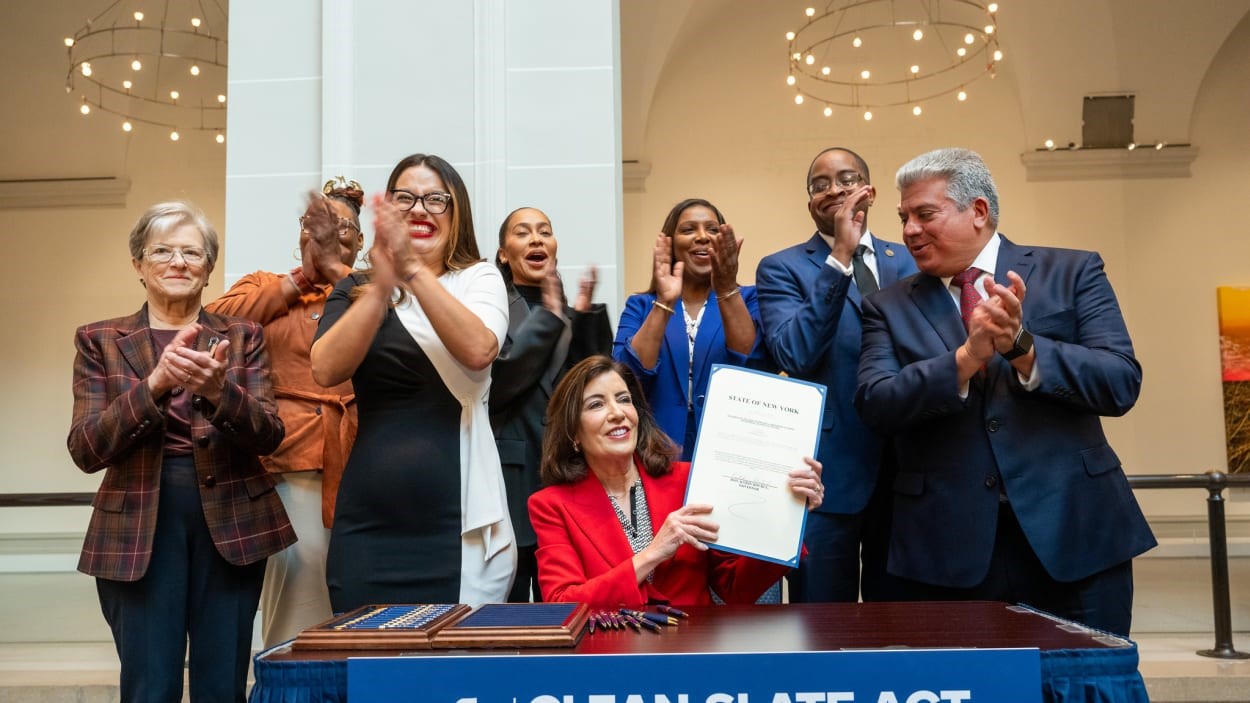New York will seal millions of criminal records under its new ‘Clean Slate’ law
Governor Kathy Hochul signed the Clean Slate Act into law today, nearly six months after the legislation was passed by New York State lawmakers. When the Clean Slate Act goes into effect one year from now, it could impact two million residents whose criminal records would be eligible to be sealed under the law. The law—an attempt to address the employment and housing discrimination that people with a record often face—will allow New Yorkers to seal their records once they have gone a certain amount of time without another conviction. (The window is three years for misdemeanor charges and eight years for felonies, barring the most serious felonies like murder.) With the exception of drug-related offenses, all Class A felonies are now excluded from the law, in part due to concerns raised by Hochul over the scope of previous iterations of the bill. While the bill was spearheaded by criminal justice advocates, it has since drawn significant support from the business community—including companies like Microsoft, Verizon, and JPMorgan Chase—as advocates have also emphasized the economic case for mitigating the barriers to employment that persist for people with a record. “If we’re prohibiting people from accessing work, or we’re requiring them to have this scarlet letter that kind of marks them, then we’re taking a big swath of people and exiling them from the economy,” Ken Oliver, head of Checkr.org, previously told Fast Company. An analysis by the New York City comptroller found that in the city alone, people who are able to seal their records could stand to gain $2.4 billion in annual wages. As of today, New York joins a group of 12 states that have enacted some version of Clean Slate legislation, from such blue states as California and Colorado to red states including Utah and Oklahoma.
(31)



